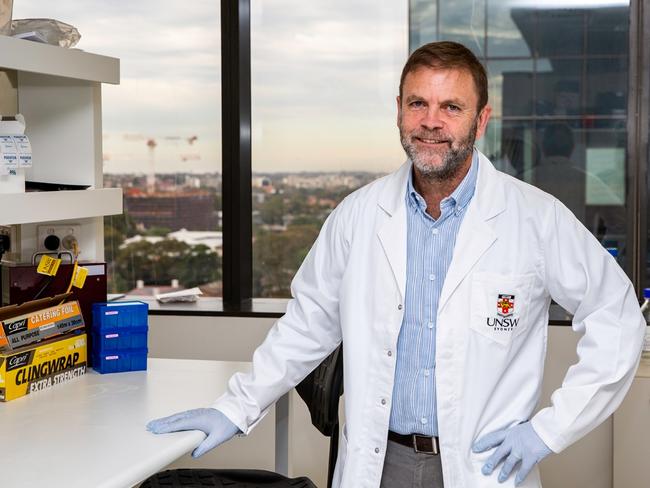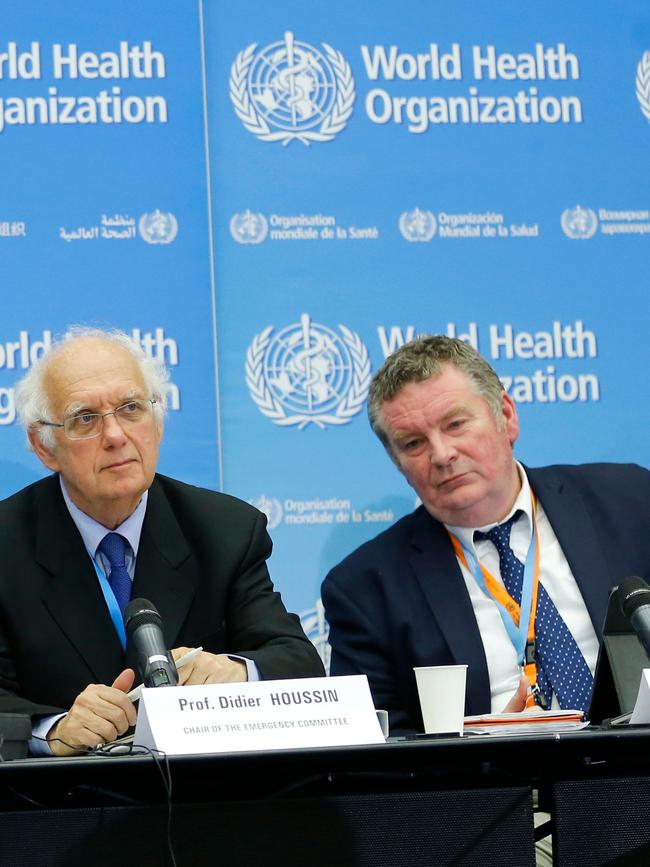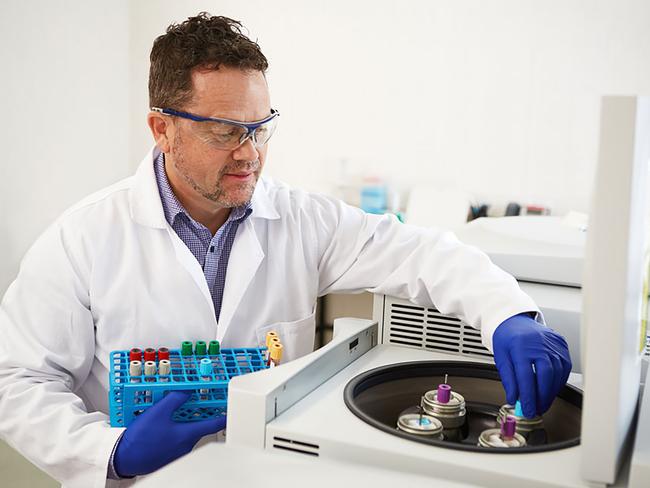WHO: Hope in coronavirus treatments but virus ‘may never go away’
The World Health Organisation has seen positive results in trials of drugs to treat coronavirus, but the global health body has warned the deadly virus may never go away.
NSW Coronavirus News
Don't miss out on the headlines from NSW Coronavirus News. Followed categories will be added to My News.
Early studies of drug treatments for COVID-19 have yielded fresh hope among scientists despite the World Health Organisation warning that the disease which has claimed 300,000 lives may be with us forever.
Leading the global race for a cure, the Geneva-based WHO has narrowed a list of drug treatments down after working to develop vaccines and tests to diagnose and treat patients with the novel coronavirus.

“We do have some treatments that seem to be in very early studies limiting the severity or the length of the illness but we do not have anything that can kill or stop the virus,”, WHO spokeswoman Margaret Harris, said at a briefing on Tuesday.
“We do have potentially positive data coming out but we need to see more data to be 100 per cent confident that we can say ‘this treatment over that one’.”
MORE NEWS
Fugitive Barbaro extradited after bloody penthouse stand-off
‘Busting at the seams’: School over capacity before it even opens
Why Red Cross is sitting on $127 million of bushfire funding
Ms Harris had been referring to early results of four or five treatments already in the public domain and not to the WHO’s ongoing Solidarity Trial.
Four treatment options are currently under the Solidarity Trial, including Remdesivir which was previously tested as an ebola treatment, as well as Interferon BETA-1a which is used to treat multiple sclerosis.
Clinical data released last month raised hopes Remdesivir might be an effective treatment with several studies looking at antiviral medicines have suggesting it may help patients fight off the virus.
Meanwhile, a Hong Kong trial of 127 patients found that patients suffering milder illness caused by the coronavirus recovered more quickly if they were treated with a three-drug antiviral cocktail of anti-HIV medicine lopinavir-ritonavir, the hepatitis drug ribavirin and the multiple sclerosis treatment interferon beta soon after symptoms appear.
Professor Anthony Kelleher, director of the Kirby Institute at UNSW in Sydney, said while the antiviral drugs had shown “early encouragement” further work needed to be done.

“Remdesivir has shown in severe diseases in one trial to shorten the course of the illness but did not impact death: in another … it did not show a difference,” he said.
“This (smaller phase II trial in Hong Kong) showed improved outcomes on a range of measures, including earlier resolution of symptoms and earlier clearance of nasal swabs which is encouraging, but needs to be validated in larger numbers of patients and with blinded therapy.”
There are more than a 100 potential COVID-19 vaccines being developed around the world, including several in the clinical trial stage. The WHO said in April a vaccine would take at least a year.
But WHO officials have wanted around expectations for a vaccine, saying it could take up to a year before anything is developed for the virus which has shown to be “difficult to produce vaccines against”.
Speaking at a briefing on Wednesday, WHO emergencies director Dr Mike Ryan warned against trying to predict when the virus would disappear, saying it may become just another endemic virus in our communities, and never go away,” Dr Ryan told the virtual press conference from Geneva.
“HIV has not gone away — but we have come to terms with the virus,” he said.

Treatment options under the “Solidarity” clinical trial for COVID-19
REMDESIVIR
Clinical trials have shown the new COVID-19 treatment shortened the recovery time for critically ill patients by four days. The antiviral drug copies the genetic material of the coronavirus – its RNA – gradually taking its place, in effect stopping viral replication. While it shows great promise, there are fears supplies will not come close to global demand.
LOPINAVIR/ RITONAVIR
Early findings from Hong Kong have found patients who are treated with a three-drug antiviral cocktail, reached the point of no detectable virus five days earlier than those in the control group. But independent experts agreed that the findings were positive, but said larger and more detailed studies would be needed.
INTERFERON BETA-1a
This drug was developed to treat multiple sclerosis (MS) and has been shown to reduce viral load and improve lung problems in animal studies of Middle East respiratory syndrome (MERS) coronavirus infection. Early findings suggest that interferon beta 1-b may be a key component of the combination treatment and is worth further investigation for the treatment of COVID-19.
CHLOROQUINE AND HYDROXYCHLOROQUINE
The drugs used to treat malaria, but their ability to treat COVID-19 is still disputed by experts, despite being touted by the US president, Donald Trump, as a “gamechanger”. The promotion and use of the two treatments has already led to shortages, self-treatment and fatal overdoses, according to a perspective published in The American Journal of Tropical Medicine and Hygiene.

